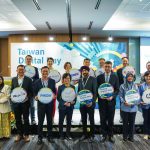The Malaysia Digital Economy Corporation (MDEC) expects a boost in investor confidence as with the recent announcement of the national digital economy blueprint MyDIGITAL which is further accelerating the country’s digital economy agenda.
Based on the Department of Statistics Malaysia report, the digital economy’s contribution to gross domestic product (GDP) for 2019 stood at 19.1% or RM289.2bil and is projected to hit 20% in 2020.
“Amid the COVID-19 pandemic which disrupted foreign direct investment (FDI) globally, we continue to build strong investment momentum in our digital tech industry,” said Senior Vice President, Investment and Brand, MDEC, Raymond Siva. “We are seeing good investment momentum in the MSC Malaysia as to date, MDEC has recorded RM345bil in digital investments, creating close to 185,000 jobs.”
Raymond also added that this includes significant investments from multinationals that have established their global business services and regional operations here in Malaysia.
In 2020 alone, new investments by pure-play technology companies stood at RM3.98bil, while new investments recorded by digital services companies came in at RM2.01bil.
According to MDEC, these investments created over 9,000 new jobs and global tech firms which have operations in Malaysia such as NTT, Hitachi Sunway Information Systems, transcosmos and DKSH CSSC continue to show confidence by re-investing in Malaysia.
MDEC has also played a vital role in attracting many leading digital companies to set up their regional presence in Malaysia, including PCCW Solutions, ThunderSoft and Clarivate.
“MDEC was the original startup when the word was not yet used, we will continue to build on the positive momentum to land quality and targeted digital businesses and investments into Malaysia and assist them to expand their market access.”
Siva says this is a testament to Malaysia’s solid fundamentals and ability to meet investor requirements such as having a diversified, multilingual and digitally-skilled talent pool; a vibrant ecosystem of startups and mature digital tech companies and ready infrastructure.
The above unique propositions have caused Malaysia to be ranked 2nd in Asean and 26th globally in the recent IMD World Digital Competitiveness Ranking 2020. The World Economic Forum (WEF) has also ranked Malaysia 34 out the top 40 countries in its Network Readiness Report 2020. In addition, The World Bank Digital Adoption Index 2020 noted how Malaysia outperformed its peers in East Asia and the Pacific regions for digital adoption capabilities.
MDEC leading the digital economy forward
According to the Department of Statistics Malaysia, the digital economy is expected to continue its significant contribution to the country in 2021 based on an estimated 20% contribution to GDP in 2020, on the back of a 6.7% economic growth forecast this year by the World Bank.
MDEC’s focus will be on the three strategic thrusts – empowering digitally skilled Malaysians, accelerating digitally-powered businesses, and attracting digital investments.
“Additionally, through our Global Testbed Initiative, we welcome companies to test-bed next-gen technologies for rapid expansion into the region,” Raymond said. “Our Malaysia Digital Hub initiative is also an ideal launchpad for startups to grow and scale.”
With the launch of MyDIGITAL, he emphasised that these initiatives will be intensified.
“We have to reinvent our approach to attract more investments in the emerging digital technology sector for the country to remain competitive, maintain its position in the global supply chain ecosystem, as well as enable increased demand for new, high-skilled digital jobs,” Raymond said.
Attractive incentives in digital investments
Echoing similar sentiments, EY Asia-Pacific Tax Leader, Yeo Eng Ping said that Malaysia provides a solid base for high value-added technology-related activities, such as centres of excellence for high-value technology innovation, research and development (R&D), digital activities, for example, Big Data Analytics (BDA), Artificial Intelligence (AI) and robotics, as well as space and designated locations for the testing of technologies such as drones and driverless vehicles.
“With Malaysia’s strong footing in the manufacturing sector, there should be many opportunities for digital companies to develop, test and/or market 4IR and other manufacturing solutions, both locally and abroad,” Yeo said. “Malaysia offers a comprehensive set of incentives to encourage investments in digital technology and services.“
Also ccording to Yeo, the MSC status provides attractive tax and non-tax incentives. For example, under the current tax incentive framework, income tax exemption for a period of five years (with a potential five-year extension) is given to MSC-status companies carrying out approved promoted activities in areas such as BDA, AI, Fintech and Internet of Things.
Other than business-friendly policies, Malaysia’s tax regime is also attractive to companies as they start commercialising their digital creations and seek additional sources of funding and investment. For example, Malaysia does not tax dividend income or capital gains on disposal of equity investments. There are also incentives offered to venture capital companies to help encourage investments in companies in Malaysia.
In addition, Malaysia has liberalised its exchange controls, creating a conducive foreign exchange administration climate for foreign investors and the movements of funds for business purposes.
The Government’s continued efforts to enable high-tech and innovation-driven small and medium-sized companies (SMEs) affected by COVID-19 to recover and revitalise the nation’s innovation capacity are also commendable and reflective of the Government’s support for technology and innovation.
The Government’s support in this regard will be provided via Bank Negara Malaysia’s RM1 billion High Tech Facility – National Investment Aspirations (HTF-NIA). Under this facility, eligible SMEs can obtain financing of up to RM5 million, for a tenure of up to seven years.
Malaysia continues to attract tech investors through ‘Land and Expand’ strategy
MDEC celebrates its Silver Jubilee this year, commemorating 25 years of leading the digital economy for the nation.
“MDEC was the original startup when the word was not yet used,” Raymond said. “We will continue to build on the positive momentum to land quality and targeted digital businesses and investments into Malaysia and assist them to expand their market access.”
As the leading specialist digital investment promotion agency (IPA) in Malaysia, MDEC will continue to collaborate closely with other ministries, IPAs and industry leaders in Malaysia to facilitate the entry and expansion of global digital and tech companies and firmly establish Malaysia as the Heart of Digital Asean.
MARKETING Magazine is not responsible for the content of external sites.










